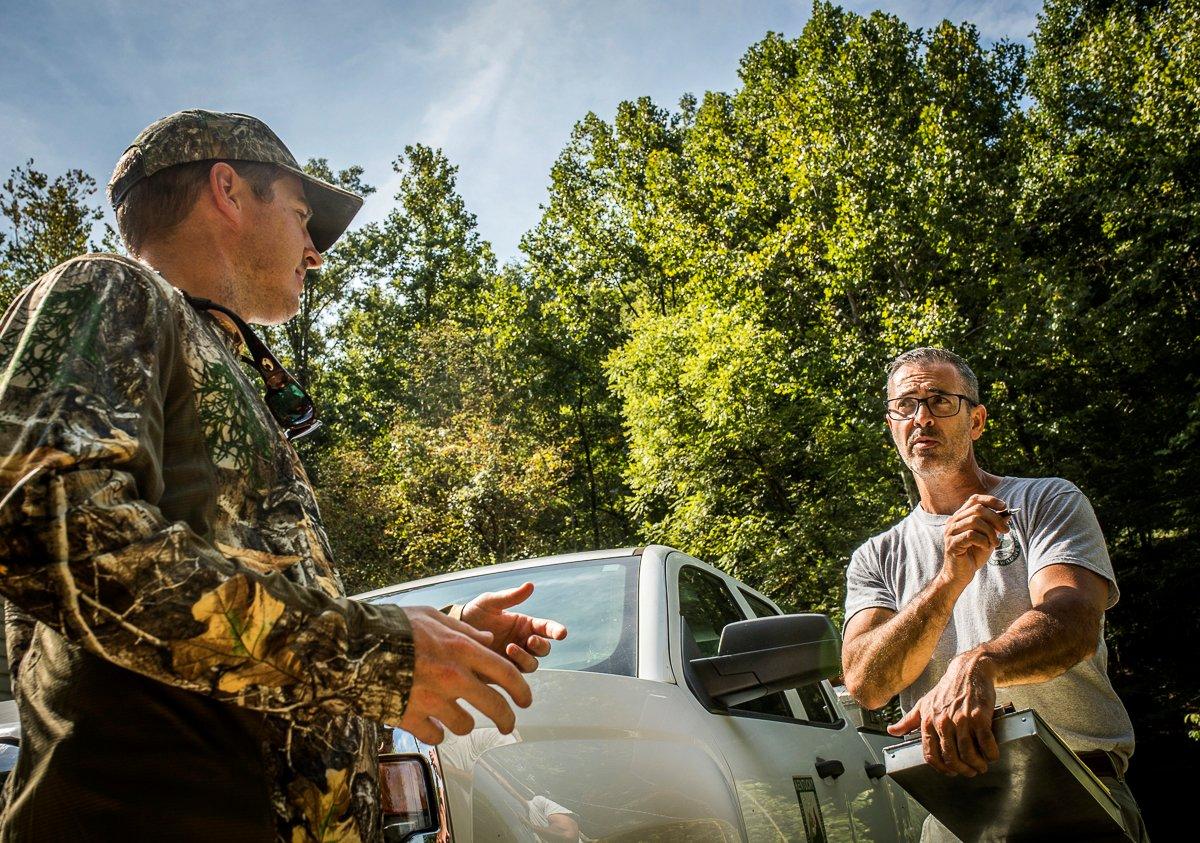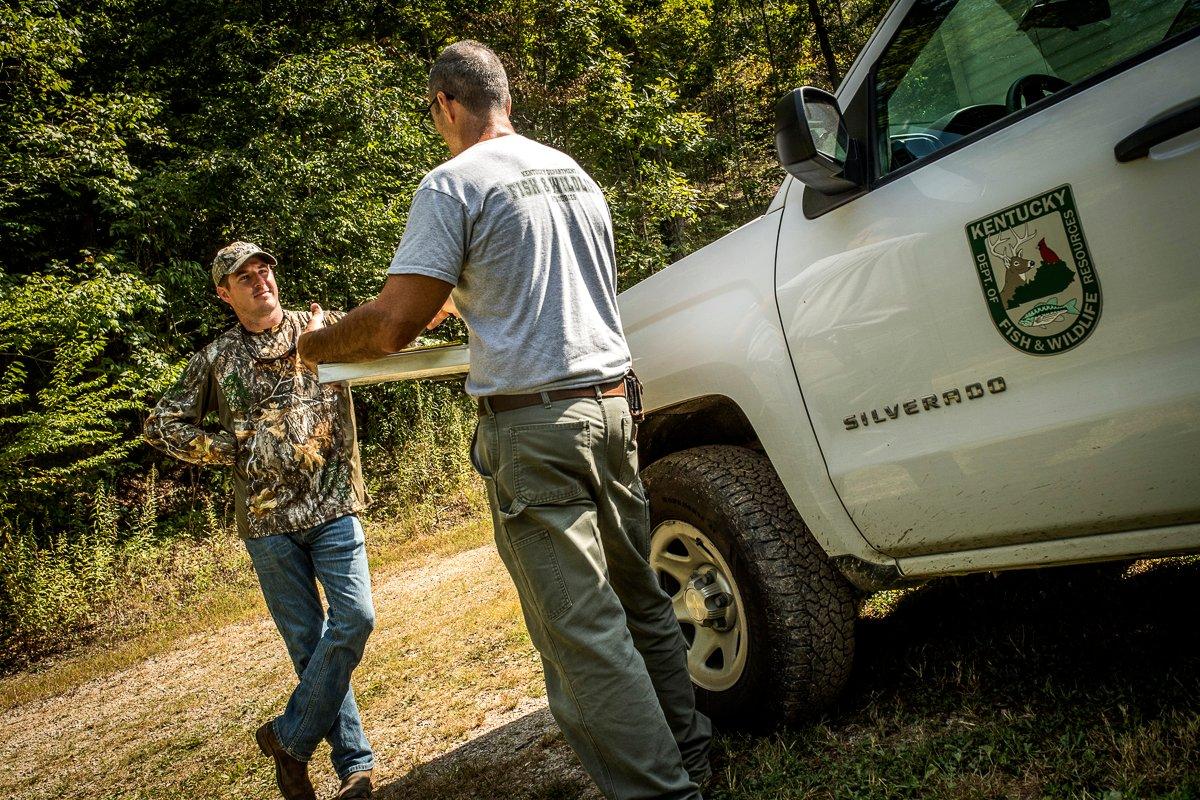Reality is, wildlife managers listen more than many believe — but hunters have to listen in return, too
The chatter usually starts after a slow day in the deer woods or duck blind. Disgruntled hunters wonder what went wrong and begin to grumble about the folks charged with managing their wildlife. It's nothing new. For years, hunters across the country have questioned the competency or even intentions of state and federal wildlife managers, often contending that biologists are out of touch with grass-roots concerns and even speculating that officials are part of far-reaching conspiracies.
Some of that is because of a simple disconnect between officials and rank-and-file hunters. Sometimes an inherent distrust of government is to blame. But it happens often enough to raise the question: Are the biologists even listening to the hunters?
The answer is yes, but biologists acknowledge the situation is complicated.
(Don't Miss: The 10 Most Annoying Catch Phrases in Hunting)
Managing Expectations
Doubt or distrust of wildlife officials often arises after hunters experience disappointing seasons or don't see as many animals as they'd anticipated. That's understandable, but it can be tough for biologists. They manage wildlife at state, regional and landscape levels, but hunters are often only concerned about the situation in their backyards. And biologists say managing those expectations can be one of the most difficult aspects of their job.
I heard a statement early in my career here that I continue to repeat, said Luke Naylor, waterfowl program coordinator with the Arkansas Game and Fish Commission. It was taken from the conservation social sciences, I think, and goes something like this: Satisfaction is the intersection of expectations and outcomes. Influencing outcomes is a major challenge. So, what can we do? Keep expectations low. Obviously, that's said a bit tongue-in-cheek. Seriously, however, I think we do ourselves a disservice by ever making bold predictions about great seasons to come. We simply can't make those predictions, and the hunting community is fully justified to call out such predictions when they turn out to be wrong.
Still, hunters clamor for information about their favorite species and want to know what to expect for upcoming seasons. That's where biologists must walk a figurative tightrope.
Everything from precipitation, habitat conditions, antler quality, age structure and hunter densities in a specific area can have localized influences on a deer population, and even though I may predict a very good year, poor deer or habitat management, overharvest, or high hunter densities can lead to a different hunting experience for that hunter than what I might provide in the forecast at the broad scale, said Alan Cain, white-tailed deer program leader for the Texas Parks and Wildlife Department. There have been years when I've predicted a good season, but within South Texas there have been localized areas — a county or portions of counties — that just didn't receive the rains, and habitat quality (nutrition) suffered, and antler quality was down in that localized area. Across the South Texas ecoregion, the season turned out to be pretty good. For hunters in that localized area, the hunt forecast was way off.
In some cases, hunters make the situation more difficult by seemingly having selective hearing, and buying into popular opinion instead of accepting documented data and other facts. Taylor Finger, migratory game-bird ecologist with the Wisconsin Department of Natural Resources, said some people there erroneously insist that most ducks arrive in the state after the season closes, which accounts for poor hunting.
In most cases, hunters don't want to hear that we have had a drought on the Canadian prairies the past two years, which likely impacted the amount of birds people saw, he said. Rather, (people say) we should change our season dates to chase that 'best duck hunting day ever' rather than providing a wide array of opportunity for the most hunters possible.
In extreme cases, hunters make up their minds about something despite dramatic evidence to the contrary. Adam Butler, wild turkey program coordinator with the Mississippi Department of Wildlife, Fisheries and Parks, once visited a landowner who insisted the property he'd just purchased was devoid of turkeys.
He'd only owned the place a couple of months, and at the time of our visit had only hunted it one single morning, he said. That day, he'd bagged a longbeard after calling three adult toms into gun range. That visit still sticks in my mind because the guy was batting 1.000 on his new place and yet was convinced the population was in the gutter. I can't do much in that situation.
Critical Conversations
Although such situations can be frustrating, officials say open dialogue is the key to bridging the gap between hunters and biologists. Butler believes that starts with giving hunters real-world numbers.
Here in Mississippi, we have great deal of data on what real hunters see and hear while in the field based on the observations they record as a part of our Spring Gobbler Hunting Survey, he said. Over the past 20 years, hunters in Mississippi hear between one and two gobblers per hunt, on average. Hunts in which more than four gobblers are heard only happen on about six to eight trips out of every 100. Most properties only harvest about one gobbler per 500 acres, on average. These numbers don't sound eye-popping, but they've been pretty consistent through time and should help us all really appreciate those rare days when the woods are on fire and there seem to be gobblers in every direction.
Finger said biologists can also try to provide a big-picture, long-term view, which can help temper unrealistic expectations.
We try to provide perspective and ask if hunters keep a hunting log or journal, and if so, does this year really rank as a poor year compared to what they experienced five or 10 years ago, or is it recency bias? he said. In reality, most times when hunters think of a the most recent season as being bad, it's pretty comparable to the majority of their hunting seasons.
Biologists also need perspective, Cain said, especially when it comes to hunter satisfaction and criticism of management agencies. Some of that feedback, although perhaps unfair, is part of the job.
I often tell folks there are a million deer hunters in Texas, and there are a million opinions on how to manage deer, he said. It doesn't matter what regulations we have in place or what we recommend. Someone is not going to be happy, or the deer season didn't live up to their expectation. Hunters today are more educated about deer management than any time in the past, but some time talking with a professional biologist — state, federal or private — often helps to put the volumes of information about deer and deer hunting in proper context and dispel some of the barstool biology, stereotypes and myths.
Ultimately, Naylor said, the best thing managers can do is openly engage in honest discussions about populations, habitat conditions and other factors that might influence the opportunities hunters experience.
I find those types of conversations — often with individuals or small groups of hunters — to be extremely impactful for me and other hunters, he said. I learn more about where they are coming from, and hopefully they leave with increased understanding of the complex drivers of waterfowl migration and hunting success. We have a lot to learn from each other. Those conversations aren't productive if they involve finger pointing and the blame game — in either direction.
That philosophy is widespread among biologists across the country.
Rest assured, waterfowl managers are not operating some deep conspiracy to pull the wool over hunters' eyes in regards to waterfowl populations and how we manage those populations and the habitats they need, Naylor said. In fact, we're pretty open about sharing information. Sure, we can always do better, but I don't know a single colleague who isn't willing to engage in reasonable conversations like I mentioned.
Although hunters might not always believe it, local, state and federal biologists listen to our opinions and concerns. They can't please everyone — especially if folks expect miracles — but that continuing communication ultimately creates dialogue that should help boost wildlife and hunting opportunities for years.
(Don't Miss: The 3 Most Expensive Hunts in North America)









